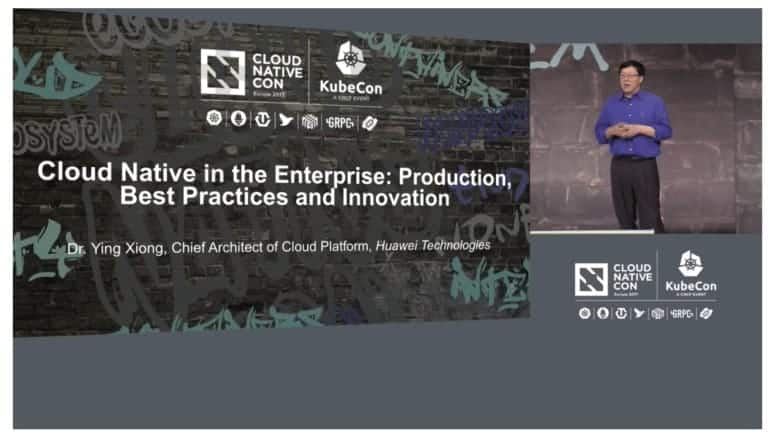Huawei is one of the largest telecommunications equipment manufacturers in the world. It has eight data centers for its internal I.T. department, which run 800+ applications in 100K+ VMs to serve 180,000 employee users.
Huawei recently turned to containerization and Kubernetes, which the company discovered brings agility, scale-out capability, and DevOps practice to cloud-based applications. To learn more, read the in-depth case study.
In the past, Huawei used virtual machines to encapsulate applications, but every time it would start a VM, it took a lot of time. The rapid increase of new applications and the cost and efficiency of management and deployment of VM-based apps created critical challenges.
Development cycles decreased from a week to minutes using a Kubernetes-based Platform as a Service (PaaS) solution. Operating expenses went down, in some circumstances by 20-30 percent. Both a user and a vendor, the company has built the technologies into FusionStage™, the PaaS solution it offers its customers.

Huawei has also grown to become the No. 3 Kubernetes contributor and is a Platinum CNCF member. Be sure to check out Huawei’s Peixin Hou talking about how cloud and open source facilitate digital transformation from last year’s LinuxCon, ContainerCon China, and Dr. Ying Xiong’s KubeCon Berlin keynote “Cloud Native in the Enterprise: Production, Best Practice and Innovation.”